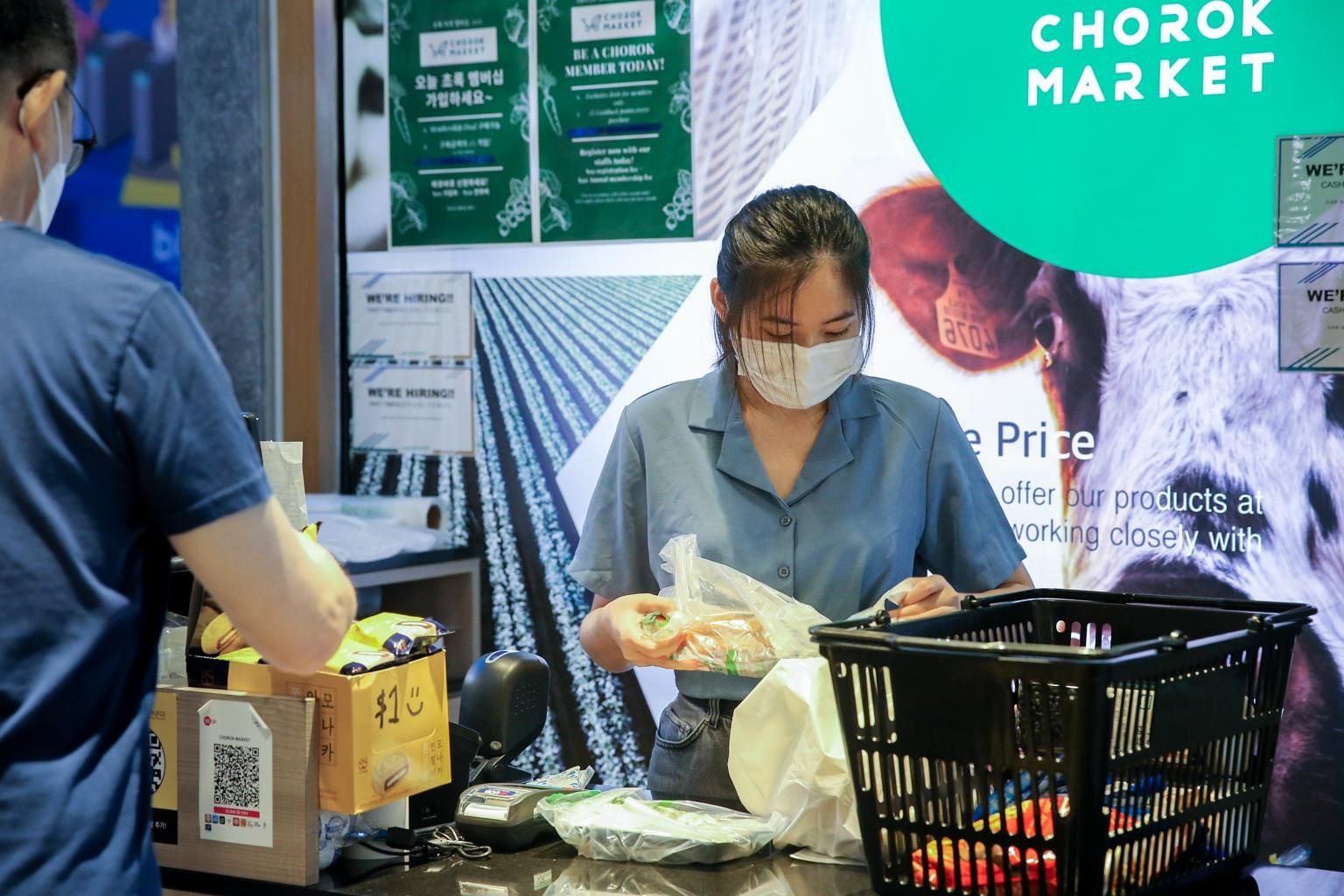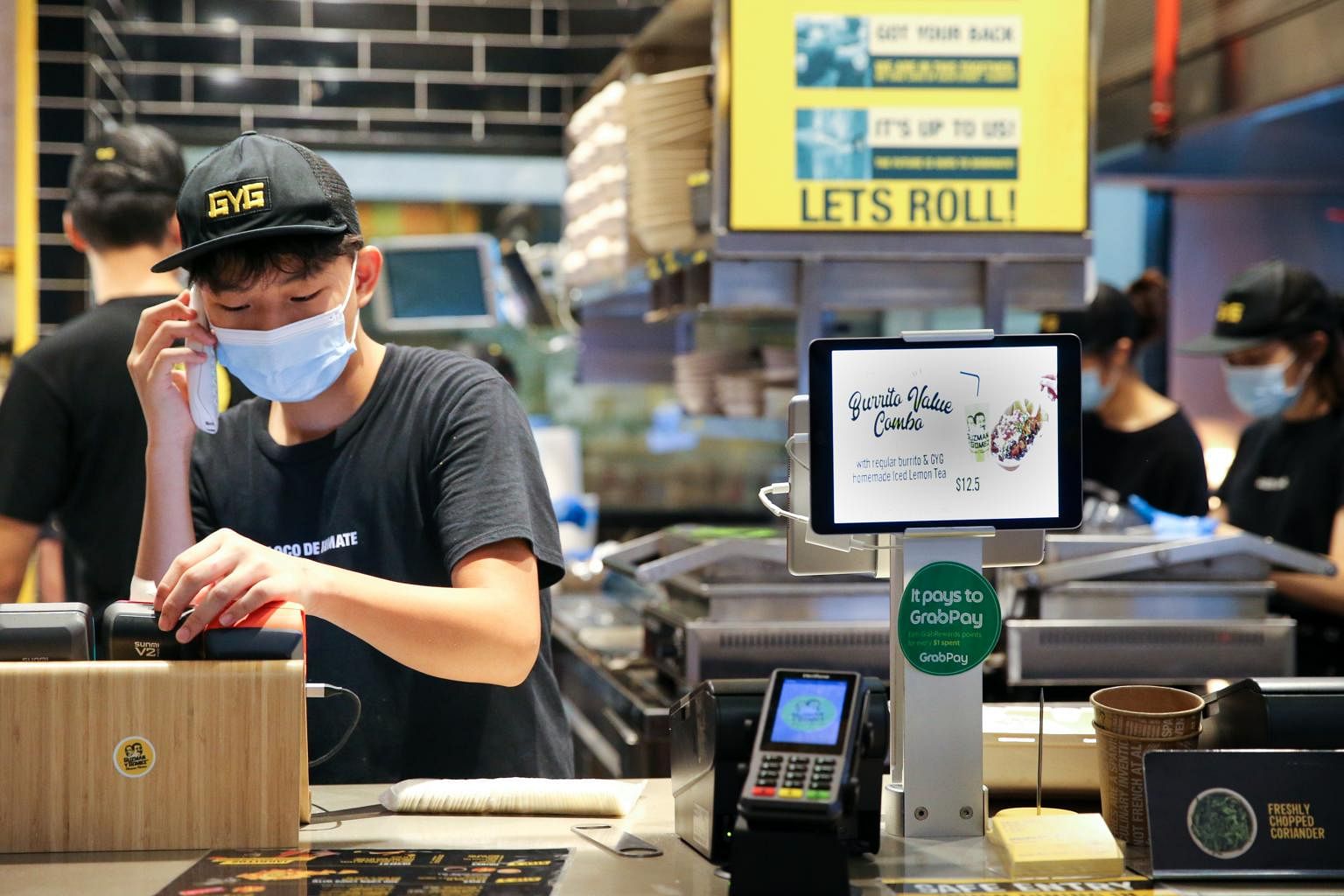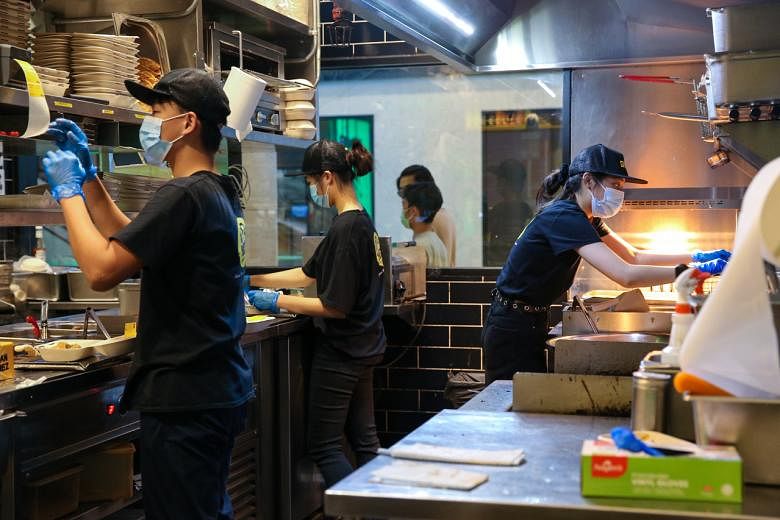SINGAPORE - The number of young workers here fell last year amid the Covid-19 pandemic.
Figures from the Manpower Ministry's Comprehensive Labour Force Survey in 2020 show the number of 15- to 19-year-olds working dipped that year to 26,300, from 32,600 in 2019.
Human resources experts and recruitment agencies told The Sunday Times the Covid-19 pandemic and subsequent restrictions likely played a key factor in the decline, especially as the pool of usual part-time jobs available, such as banquet servers, salesmen for large exhibitions and food and beverage outlet service staff, shrank.
However, other jobs such as temperature screeners and grocery store assistants remain viable.
Most teens here choose to work mostly to finance their own leisure purchases and earn some pocket money, while some work to relieve part of their parents' financial burdens, human resource experts, employment agencies and social workers told The Sunday Times.
But some of them may not have worked last year because of the risk of exposure to Covid-19, they added.
Republic Polytechnic second-year student Vijay Govinraju, 19, who is working part-time as a SafeEntry staff, said he spends his pay mostly on himself or to buy gifts for his family. He earns $10 an hour.
He said: "I didn't want to be too dependent on my parents for money so I started doing part-time jobs after I completed secondary school. It helps my parents save money, too, which they can use for other necessities at home."
Highlighting fewer part-time job opportunities as a factor, ManpowerGroup country manager Linda Teo said: "Since the pandemic started, these opportunities are not as regularly available as fewer events and promotions are being held or have moved online.
"When the circuit breaker was enforced last year, it coincided with major events and holidays like the Great Singapore Sale, school holidays and Hari Raya Puasa - periods when businesses tend to hold a lot of promotions."
She added that the restriction on holding large-scale events also cut the demand for part-timers and temporary workers.
As teenagers generally form the talent pool for such jobs, the decline in demand meant fewer work opportunities for them. They also had more competition for the jobs as more people in other age groups were retrenched or unemployed.
Ministry of Manpower (MOM) guidelines state that teenagers aged 15 to 16 cannot work at night between 11pm and 6am the next day. They are not allowed to work more than four hours without a 30-minute break. They also cannot work more than seven hours a day, including time at school.
Under the Employment (Children and Young Persons) Regulations, no child below 13 is allowed to be employed.
FastJobs Singapore general manager Lim Huishan said, with the pandemic, 15- to 19-year-old job seekers are less likely to work as they or their parents would be concerned about the risks of front-facing roles.

Teens usually go for part-time and contract roles, in particular, towards the end of the year during school holidays, she said.
Popular jobs include service crew at restaurants and fast-food and bubble tea chains, retail assistants and packers during festive seasons.
MOM data showed that of the 26,300 15- to 19-year-olds who were working last year, most worked in services rather than manufacturing and construction.
A total of 13,100 worked in public administration and education, while 3,900 worked in accommodation and food services. Another 1,100 worked in transportation and storage.
Said Ms Lim: "While the number of part-time retail and event staff roles may have declined, there have been other types of roles like packers and temperature screeners that have popped up. So there are still many opportunities for teens to find part-time or casual opportunities."
Human resource consultant Martin Gabriel from HRMatters21 said: "Speaking as a parent, children do worry when they think their parents are facing hardship. They work so they have their own money and contribute if they have to."

Social workers who work with teens from vulnerable families said some clients work to supplement family income.
Reach Youth Service senior social worker Derrick Lau said: "Where their money goes to depends on the severity of the situation at home. Some will help put food on the table while others just supplement their pocket money."
Mr Lau said about half of the at-risk youth he works with have part-time jobs.
He added that for those from disadvantaged backgrounds, most of their parents are facing financial difficulties with the current Covid-19 situation.
Some of these young people are able to find jobs much easier than their parents since their age makes them more employable.
Young people told The Sunday Times they choose to work part-time so they do not have to depend on their parents to purchase things that are non-essential.
Institute of Technical Education first-year student Fernandez Shereen Shaneetha, 19, said the side income is mostly for personal expenses like clothes and for her savings, though she occasionally chips in for groceries to ease the financial load on her parents.
She earns $10 an hour as a retail assistant. She said: "I don't want to make my parents worry about providing for me, especially for my 'wants'."

